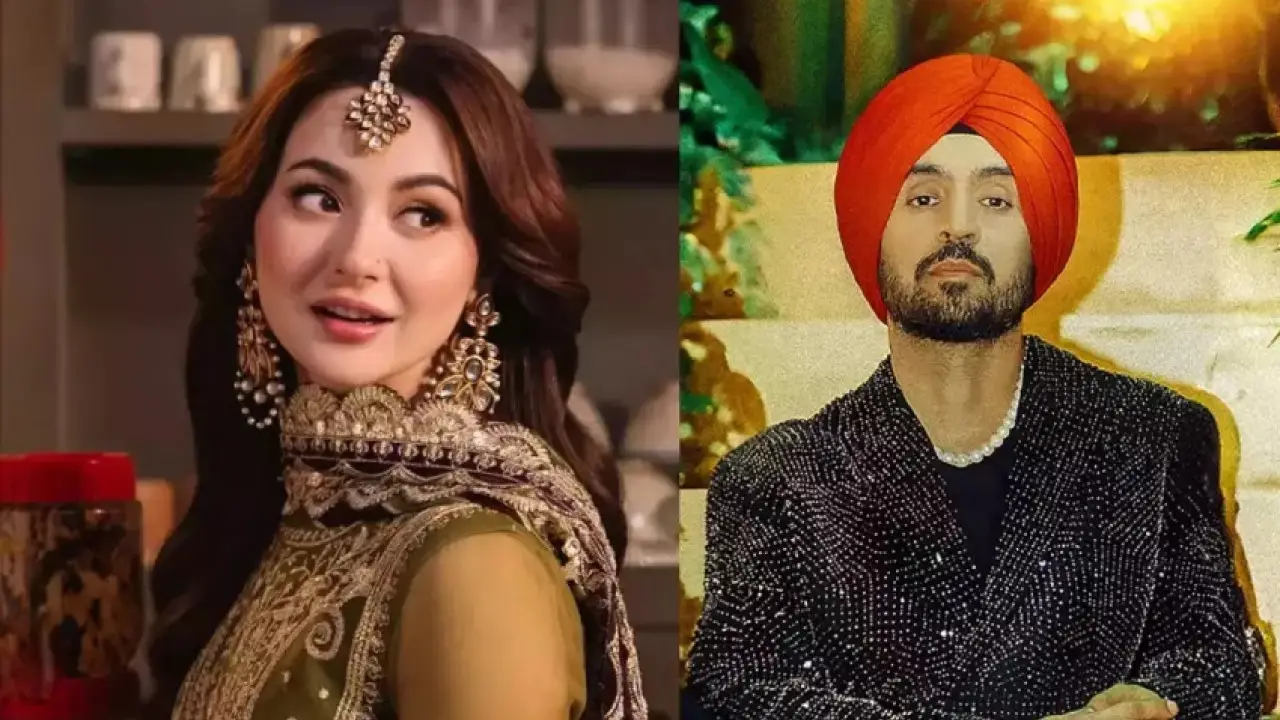
Hania-Aamir-diljit-Dosanjh (Social Media)
Entertainment News:Diljit Dosanjh’s latest film, Sardar Ji 3, has been officially approved for release in Pakistan, igniting a wave of protests and backlash in India. The approval has intensified tensions between the two nations, with Indian political leaders and activists criticizing the film's content and its approval. The film, a comedy-fantasy, includes references to cultural and historical elements that some in India find controversial. Critics argue that its portrayal of certain themes could negatively impact cultural sensitivities and foster misunderstandings. In Pakistan, however, the film has been welcomed by audiences who are excited about Dosanjh's performance. As debates rage across both countries, calls for a boycott have emerged in India, while Pakistan celebrates the film’s release. The controversy highlights the power of cinema in shaping international relations and public opinion.
The film Sardar Ji 3, the third installment in the popular franchise, has garnered significant attention due to its approval for release in Pakistan. While it has been embraced by audiences across the border, the news has sparked a heated debate in India. Critics and political leaders in India have expressed strong objections to the film’s approval, citing concerns over its portrayal of cultural and historical narratives. Some view the film's release as politically sensitive, while others believe it could deepen existing tensions between the two nations. The approval has raised questions about the role of cinema in fostering cross-border relations.
The content of Sardar Ji 3 is another point of contention. The film’s plot, which blends comedy with fantasy, includes references to historical figures and events that have been controversial in India. While the film is a work of fiction, many believe it trivializes certain cultural aspects. Critics argue that the film may inadvertently create misunderstandings or reinforce stereotypes, especially among younger audiences. This has led to calls for greater scrutiny of content before granting approval for international releases. The film's portrayal of Sikh culture, in particular, has sparked strong reactions from some groups in India.
Indian political leaders have joined the fray, voicing their opposition to the film's release in Pakistan. Several prominent figures have criticized the film's approval, calling it a "provocation" and a "cultural affront." They argue that the release of such films in Pakistan can influence public perception and may even fuel anti-India sentiment. In a statement, one prominent leader from Punjab emphasized the need for governments to regulate the content that crosses borders to ensure it does not exacerbate existing political or cultural tensions. The issue has led to broader discussions about the role of cinema in international diplomacy.
The reaction from fans has been mixed, with audiences in both countries expressing diverse opinions. In Pakistan, Sardar Ji 3 has been met with excitement, with many fans praising Diljit Dosanjh’s performance and the film’s humor. However, in India, the backlash has been more intense, especially among those who feel that the film might harm national sentiments. Some fans argue that the film is simply meant for entertainment and should not be politicized. On the other hand, some have vowed to boycott the film in protest of its approval. Social media platforms have become battlegrounds for these differing viewpoints.
The controversy surrounding Sardar Ji 3 has also raised broader questions about the role of entertainment in shaping cultural relations between India and Pakistan. While cinema has often served as a bridge to foster understanding, the current situation highlights the delicate balance between freedom of expression and national sensitivities. Critics argue that films, especially those with historical themes, need to be handled carefully to avoid inflaming tensions. The ongoing debates have prompted calls for a more nuanced approach to cultural exchanges, one that considers the political climate and public sentiment on both sides.
As the controversy continues to unfold, it remains unclear how the situation will evolve. The film’s release in Pakistan is already underway, but its potential screening in India is still uncertain due to the ongoing backlash. In India, some political factions have demanded that the government take action to prevent the film from being screened. With tensions rising, there are concerns that the issue could escalate further, affecting future cultural exchanges. Ultimately, how the governments of both countries handle this situation could set the tone for future cross-border cinematic collaborations.





Copyright © 2026 Top Indian News
